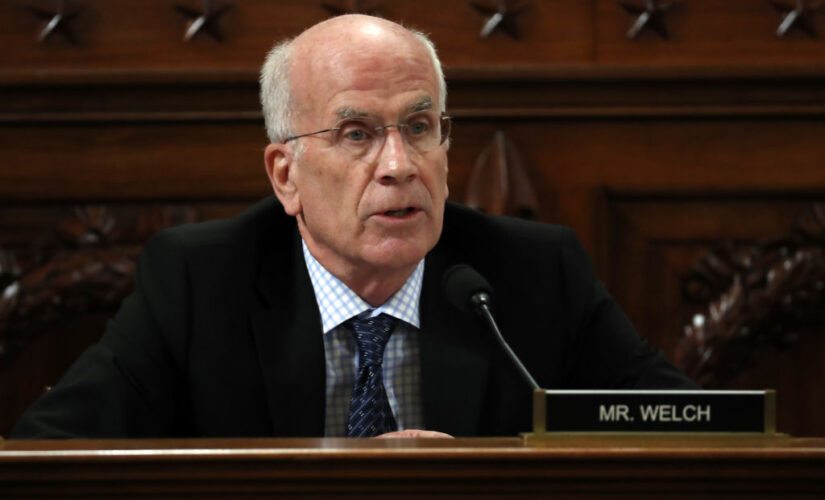NEWYou can now listen to Fox News articles!
Vermont voters will choose candidates Tuesday to fill a seat in the U.S. Senate that has been occupied since 1975 by retiring Democratic U.S. Sen. Patrick Leahy, the last of Congress’s so-called Watergate babies, elected after the resignation of former President Richard Nixon.
The leading Democratic candidate to run for Leahy’s seat in the November election is U.S. Rep. Peter Welch, a liberal Democrat known for working across the aisle. Welch has held his House seat since 2007. During the years he has been in Congress, Welch has been one of Vermont’s top vote getters and would be an odds-on favorite to win the general election.
Vermont’s former U.S. Attorney Christina Nolan and retired U.S. Army officer Gerald Malloy are the two leading candidates vying for the Republican Party nomination for the November election.
Both Nolan and Malloy believe they can win the seat. Vermont is considered by many to be one of the most liberal states in country. No Republican has represented the state in Washington since 2001 when the late Sen. Jim Jeffords left the GOP to become an independent, switching control of the Senate from Republican to Democratic.
VERMONT GOVERNOR BANS ‘MULTI-HOUSEHOLD SOCIAL GATHERINGS’ IN NEW CORONAVIRUS CRACKDOWN
But the state, with its small congressional delegation, has never sent a woman or a member of a minority group to represent it in Washington.
The leading Democratic candidate for the Senate seat soon to be vacated by Sen. Patrick Leahy is Rep. Peter Welch, seen here questioning witnesses during a House Intelligence Committee impeachment inquiry hearing in Washington, D.C., on Tuesday, Nov. 19, 2019.
(Jacquelyn Martin/AP Photo/Bloomberg via Getty Images)
Welch’s decision to run for the Senate seat opens up his seat in the House, the first time since 2006 that there have been any openings in Vermont’s three-member congressional delegation. The two leading Democratic candidates are Lt. Gov. Molly Gray and state Senate President Pro Tempore, Becca Balint.
VERMONT NATIONAL GUARD INVESTIGATES MISCONDUCT ALLEGATIONS
In deep blue Vermont it’s likely the winner of the Democratic House primary will win easily in November, erasing what some consider to be the blot on the liberal state’s reputation of only being represented by white men.
The two share similar policy views, but the race is pitting Gray, a centrist candidate supported by the state’s Democratic establishment, and Balint, who is being supported by the progressive wing of the party in Vermont and nationally.
The two leading GOP candidates for the U.S. House nomination are Ericka Redic, of Burlington, and Liam Madden, a Marine Corps veteran from Bellows Falls.
Redic says that if elected she would focus on fighting inflation, illegal immigration, drug misuse and government overreach, particularly as it concerns vaccine mandates.
Madden, a non-traditional candidate in the Republican primary, says he’s an independent. He said he had thought of declining the nomination if he wins, until he learned that would allow the party to choose a replacement for the November ballot.
The Vermont primary will also choose the nominees for governor.
Vermont Republican Gov. Phil Scott, of Berlin — a one-time stock car driver and the GOP’s lone statewide officeholder — is seeking his party’s nomination to run for reelection in November.
VERMONT CITY DETERIORATES AFTER DEFUNDING POLICE, CRITICS FEAR ‘RACIST’ LABEL FOR SPEAKING OUT
Elected to his first two-year term as governor in 2016, Scott has focused his time in office on making Vermont more affordable and working to attract more people to the state to counter a demographic trend of an aging population with a shrinking workforce and fewer school-age children.
He is facing two little-known candidates in the primary.
The lone candidate for the Democratic nomination is activist Brenda Siegel, of Newfane. Last fall she spent 27 nights sleeping on the steps of the Vermont Statehouse to highlight the state’s homelessness challenge.




